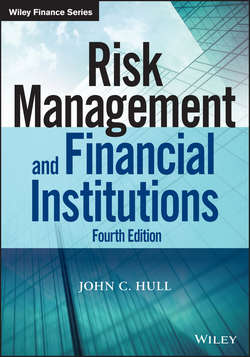Читать книгу Risk Management and Financial Institutions - Hull John C. - Страница 23
На сайте Литреса книга снята с продажи.
PART One
Financial Institutions and Their Trading
CHAPTER 2
Banks
2.5 SECURITIES TRADING
ОглавлениеBanks often get involved in securities trading, providing brokerage services, and making a market in individual securities. In doing so, they compete with smaller securities firms that do not offer other banking services. As mentioned earlier, the Dodd–Frank act in the United States does not allow banks to engage in proprietary trading. In some other countries, proprietary trading is allowed, but it usually has to be organized so that losses do not affect depositors.
Most large investment and commercial banks have extensive trading activities. Apart from proprietary trading (which may or may not be allowed), banks trade to provide services to their clients. (For example, a bank might enter into a derivatives transaction with a corporate client to help it reduce its foreign exchange risk.) They also trade (typically with other financial institutions) to hedge their risks.
A broker assists in the trading of securities by taking orders from clients and arranging for them to be carried out on an exchange. Some brokers operate nationally, and some serve only a particular region. Some, known as full-service brokers, offer investment research and advice. Others, known as discount brokers, charge lower commissions, but provide no advice. Some offer online services, and some, such as E*Trade, provide a platform for customers to trade without a broker.
A market maker facilitates trading by always being prepared to quote a bid (the price at which it is prepared to buy) and an offer (the price at which it is prepared to sell). When providing a quote, it does not know whether the person requesting the quote wants to buy or sell. The market maker makes a profit from the spread between the bid and the offer, but takes the risk that it will be left with an unacceptably high exposure.
Many exchanges on which stocks, options, and futures trade use market makers. Typically, an exchange will specify a maximum level for the size of a market maker's bid-offer spread (the difference between the offer and the bid). Banks have in the past been market makers for instruments such as forward contracts, swaps, and options trading in the over-the-counter (OTC) market. (See Chapter 5 for a discussion of these instruments and the over-the-counter market.) The trading and market making of these types of instruments is now increasingly being carried out on electronic platforms that are known as swap execution facilities (SEFs) in the United States and organized trading facilities (OTFs) in Europe. (See Sections 5.1, 16.4, and 18.3.)
